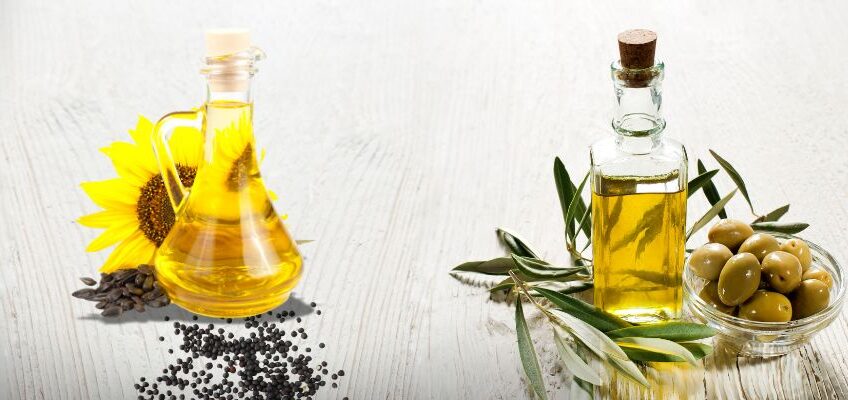Extra virgin olive oil (EVOO) stands out among cooking oils for its unique combination of nutritious, healthy, flavorful, and versatile characteristics. Prevalent in Mediterranean cuisine,
EVOO is widely gaining popularity, and for good reasons.
To make the point, let’s look into how EVOO compares to seed oils, such as canola, sunflower, and soybean oils, commonly used for cooking, taking several factors into consideration:
- Source: EVOO is obtained from the cold pressing of olives, retaining most of its natural flavors, antioxidants, and nutrients. Whereas seed oils are extracted from seeds through pressing or solvent extraction, and often refined to remove impurities and extend shelf life.
- Processing: EVOO is minimally processed; it's mechanically extracted without heat or chemicals, which helps retain its natural qualities. Seed oils often undergo extensive
processing, including refining, bleaching, and deodorizing, which can strip away nutrients and antioxidants. - Nutrient Content: EVOO is rich in monounsaturated fats (especially oleic acid), antioxidants, and polyphenols. It also contains beneficial plant compounds like oleocanthal, in addition to vitamins E and K. While seed oils are typically high in polyunsaturated fats, contain omega-6 fatty acids and sometimes omega-3 fatty acids, and provide some Vitamin E; they have fewer antioxidants and vitamins compared to EVOO. Canola oil, however, also contains a fair amount of monounsaturated fats.
- Health Claims: EVOO is associated with numerous health benefits, starting with promoting heart health, and including reduced inflammation, protection from oxidative stress, improved cholesterol levels, enhanced cardiovascular well-being, lower risk of chronic diseases, and potential protective effects against certain cancers; all due to its high content of antioxidants and beneficial fats. Seed oils, on the other hand, can be healthy when consumed in moderation; but may contribute, in the case of sunflower oil and soybean oil, to an imbalanced omega-6 to omega-3 ratio if consumed in excess, potentially leading to inflammation. Canola oil, however is generally considered heart-healthy due to its low saturated fat content and beneficial fatty acid profile.
- Flavor Profile: EVOO has a rich, distinctive, often fruity or peppery flavor, ranging from mild to robust, that can enhance the taste quality of dishes; whereas seed oils are generally neutral in flavor, which makes them ideal for recipes where the oil’s taste shouldn’t overpower the other ingredients.
- Cooking Uses: EVOO is best suited for dressings, marinades, drizzling, dipping, finishing, sautéing, and other low-to-medium heat cooking methods, where its rich and aromatic flavor is desired; while seed oils are suitable for various culinary applications, including baking, sautéing, frying, and other high-heat cooking methods, where a neutral flavor is preferred.
- Environmental Impact: EVOO production is more sustainable, particularly when sourced from organic and well-managed olive groves. Whereas seeds farming, like soybean and sunflower, can have significant environmental impacts, especially in large-scale operations.
In summary, EVOO is often preferred for its minimal processing that preserves its rich nutrients and flavors, and fosters its health benefits. Seed oils, while useful for certain cooking techniques and recipes due to their neutral flavor and high smoke point, do not offer the same level of nutritional benefits and can contribute to dietary imbalances if overconsumed. To note that canola oil tops other seed oils from nutrition and health standpoints, and can be a good choice for specific culinary applications.
Choosing the right oil often depends on cooking needs and taste preferences; but more consideration is given nowadays to nutritional profiles, health properties, and environmental impact, where EVOO excels. All the reasons to make EVOO your go-to versatile culinary staple, whatever your dietary style.







Leave a Reply